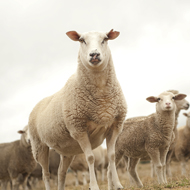
Campaign group looks forward to giving evidence
MPs are being urged to launch an inquiry into concerns that people working with organophosphate (OP) sheep dip were poisoned.
OP sheep dips were banned in 1999 over fears that some farmers were being made sick by the chemicals.
Figures obtained by The Sheep Dip Sufferers Group (SDSG) earlier this year revealed there were 160 occasions where some form of ill-health occurred after dipping.
However, only three of these cases were reported to MAFF (Ministry of Agriculture, Fisheries and Food) or the Veterinary Medicines Directorate.
Speaking to the Farmer’s Weekly, campaign co-ordinator Tom Rigby said that the time had come for a full inquiry into the issue and that the group looks forward to giving evidence ‘as soon as possible’.
His comments follow a parliamentary question raised by Newport East MP Jessica Morden last Thursday (24 November). According to Farmers Weekly, Ms Morden told parliament that documents showed there were long-term heath effects from using sheep dip.
When she asked farming minister George Eustice if he could meet the group - as he had done in the past - he replied by saying the committee on toxicity had looked at the issue exhaustively, examining 26 different studies over a period of more than a decade.
The committee had “concluded that in the absence of acute poisoning there would not be meaningful long-term effects,” he continued.
Mr Rigby told Farmers Weekly that the response showed Mr Eustice was not taking the matter seriously.
“In any other department, to dismiss concerns about health and safety by saying the issue had been looked at exhaustively and could find no evidence of long-term effect in those who had not been affected would not be considered an adequate response,” he said. “We do not think those involved in agriculture should be treated in such a shoddy manner.”
Over the last 18 months, George Eustice had been working with the SDSG in trying to raise awareness of the issue.
In 2015, he met with farmworkers who had been affected by OP dips - the first minister to do so in over 20 years. He also helped to ensure the release of blood test results, taken by MAFF in the early 1990s.



 The veterinary mental health charity Vetlife is inviting the veterinary community to join it for a sponsored cold-water dip.
The veterinary mental health charity Vetlife is inviting the veterinary community to join it for a sponsored cold-water dip.